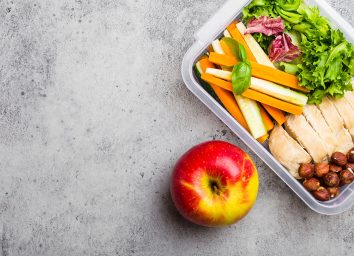The Worst Drinking Habits to Follow After 50, Says Expert
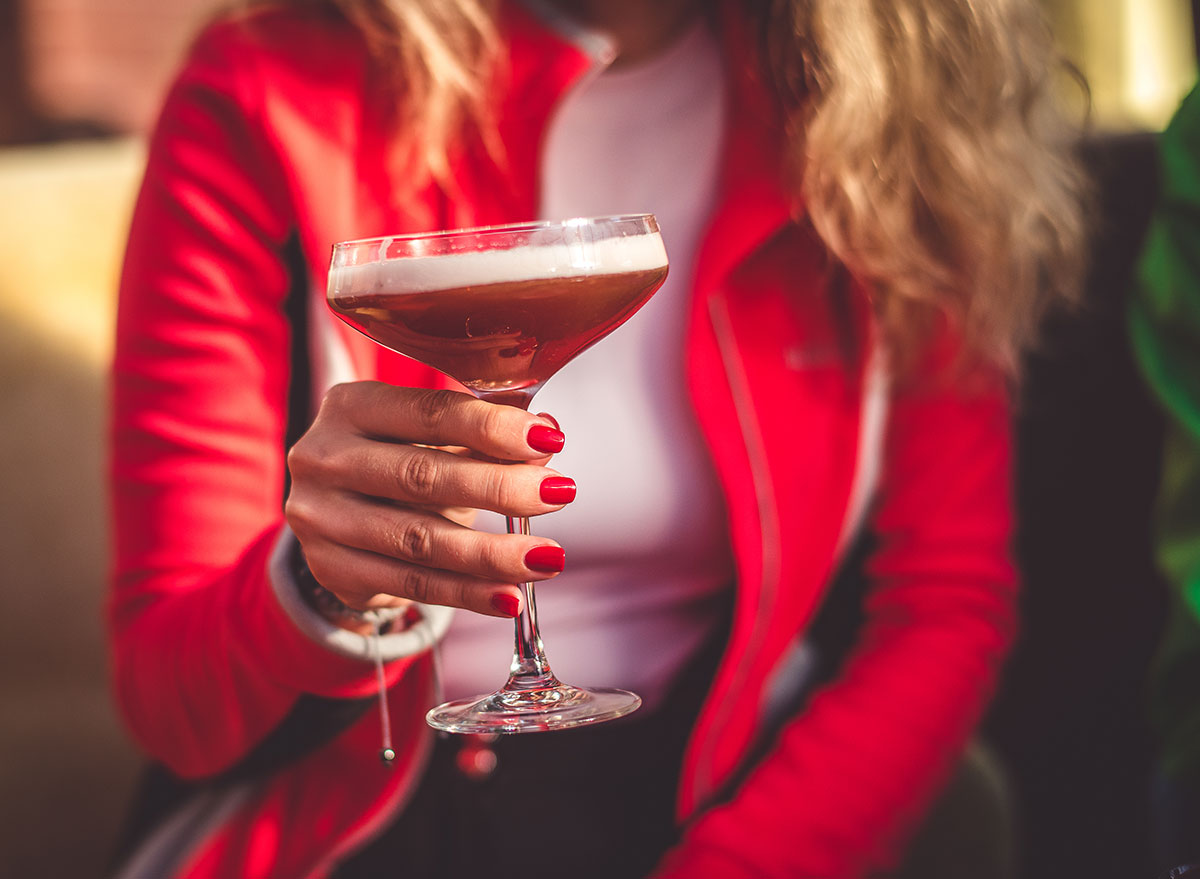
After that seminal 21st birthday, much of society spends a non-negligible amount of time experimenting with all the different ways to consume alcohol.
It might be fair to say that, in general, it starts with more adventurous means of consumption—think anything you whipped up in college—before gradually settling into a more mild glass of wine with dinner or a beer at a barbecue. By full-fledged adulthood, many people have developed drinking patterns that they are comfortable with and (hopefully) compliment their lifestyle in a healthy way.
But what happens when adulthood starts to tilt into middle and old age? It’s not uncommon for the way we drink to change between 21 and 31. What about between 41 and 51? Shouldn’t we continue to adjust as our bodies continue to mature?
We spoke to one of our medical board experts, Dr. Mike Bohl, MD, MPH, and got the scoop on how you might want to shift the way you sip.
Don’t drink too late at night.

This may feel counterintuitive—an adult beverage often pairs well with a post-dinner hang, and, as Dr. Bohl points out, “drinking can make you feel sleepy, and may even make it easier to fall asleep at night.”
But as you get older maintaining a solid sleep schedule is important, and alcohol can get in the way of that.
“Alcohol consumption is associated with reduced quality of sleep, including reduced REM sleep,” he says. “Drinking too much or drinking too close to bedtime can therefore impact how rested you feel the next morning and how well you’re able to function during the day.”
So, if you’re looking to indulge in a post-dinner cocktail, just time it up on the early side. Or, even better, make it a happy hour drink!
Limit the snacking while drinking.
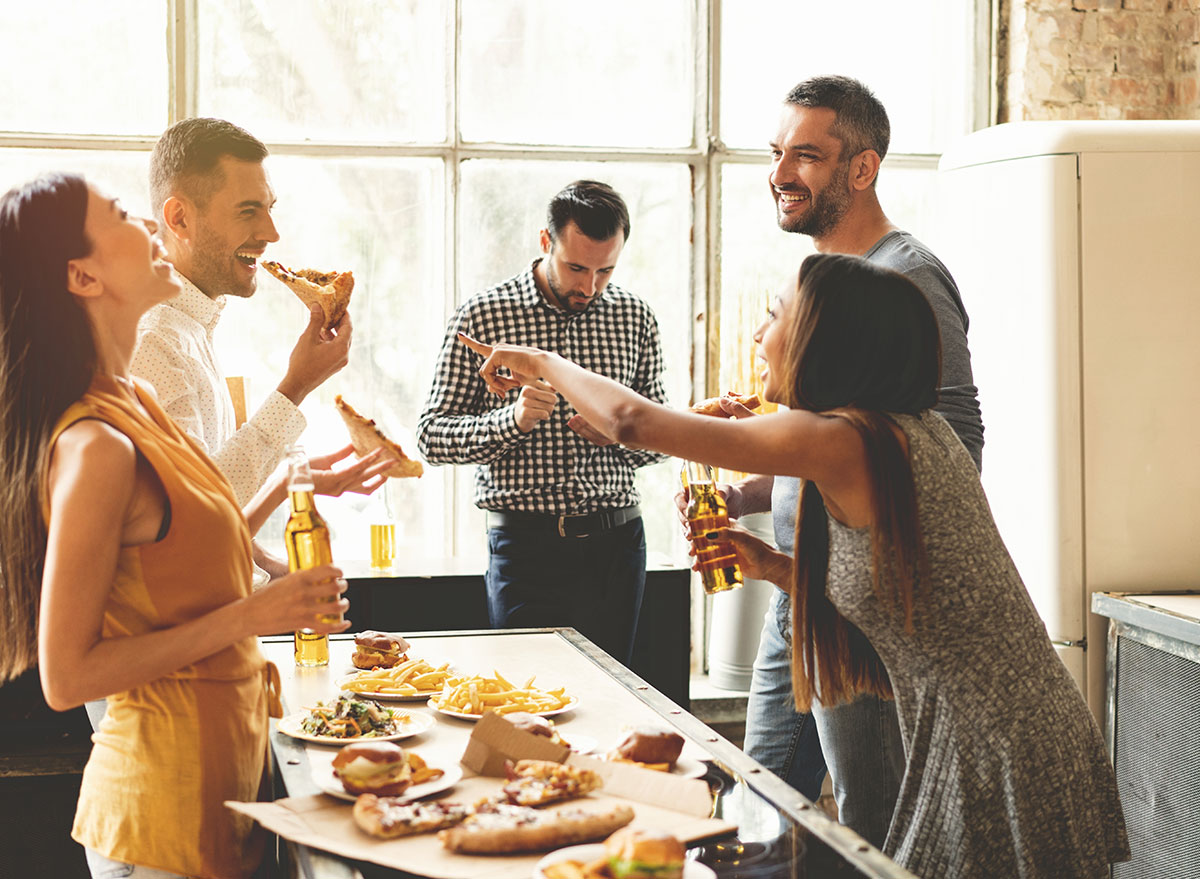
There is a bit of a line here, because keeping up a healthy diet is integral if you plan to have a few drinks. But, as Dr. Bohl notes, many drinkers pair alcohol with late-night snacks, which can be detrimental to any weight-loss efforts.
“As you get older, your metabolism slows down and it becomes easier to gain weight,” he says. “Although it may seem innocuous, alcohol is packed with calories, and the number of calories you’re consuming only increases when you eat a late-night snack as well.”
Dr. Bohl suggests limiting both the number of drinks and the amount of snacking you do, to keep your calorie count normal.
“But remember not to completely cut out food,” he said. “Replacing food calories with alcohol calories can lead to malnutrition and be detrimental to your health.”
Avoid drinking as much as when you were younger.
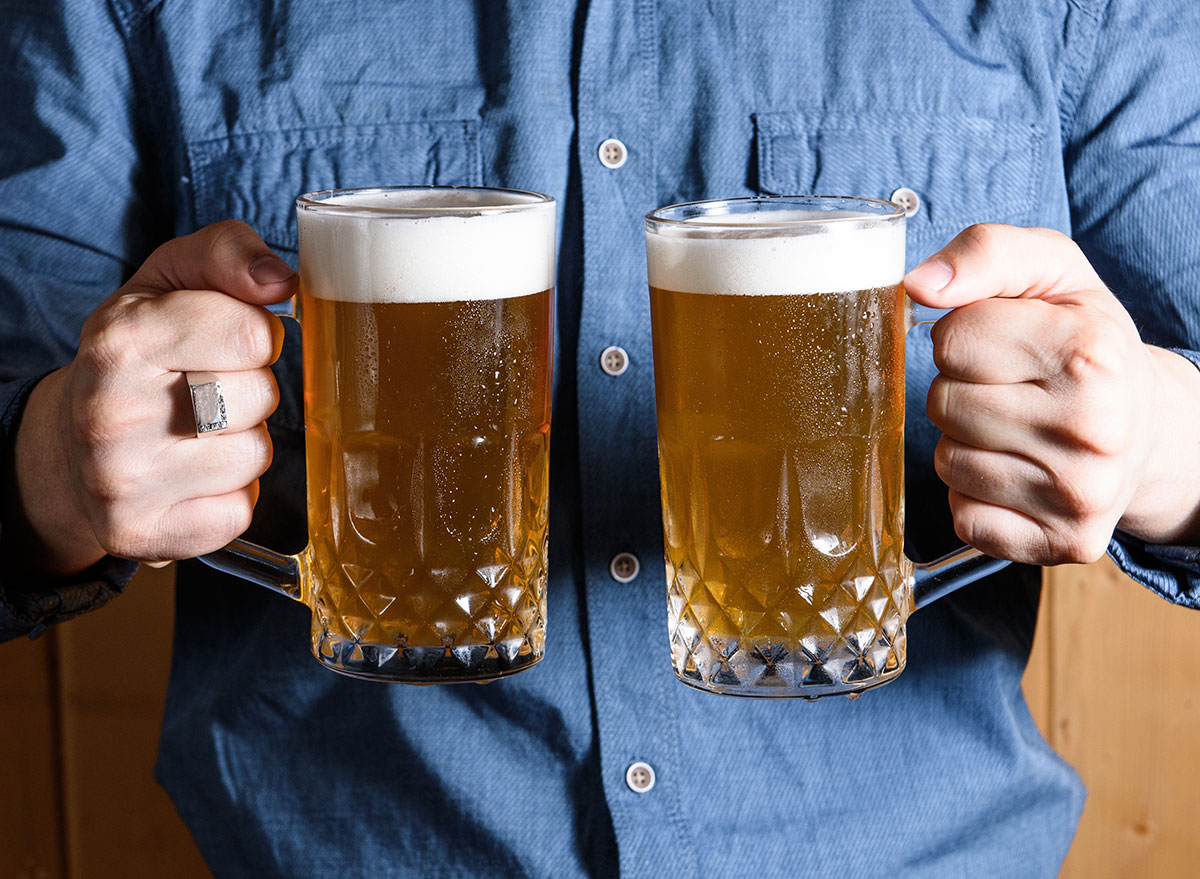
When your metabolism slows down, it processes all types of calorie intake slower: food, but also alcohol. Dr. Bohl explains that, in addition to the metabolism slowing, when people age their body has less lean mass and also less water content.
“Combined, these things can mean you feel the effects of alcohol much more than when you were younger,” he says.
The moral of the story, here? Dr. Bohl said it best: “Don’t try to drink as much as you did in your 20s. Fewer drinks can have the same effect, and it may be dangerous to have too much.”
Swap out alcohol with this #1 Best Drink To Boost Your Metabolism.
Be careful which medications you mix alcohol with.
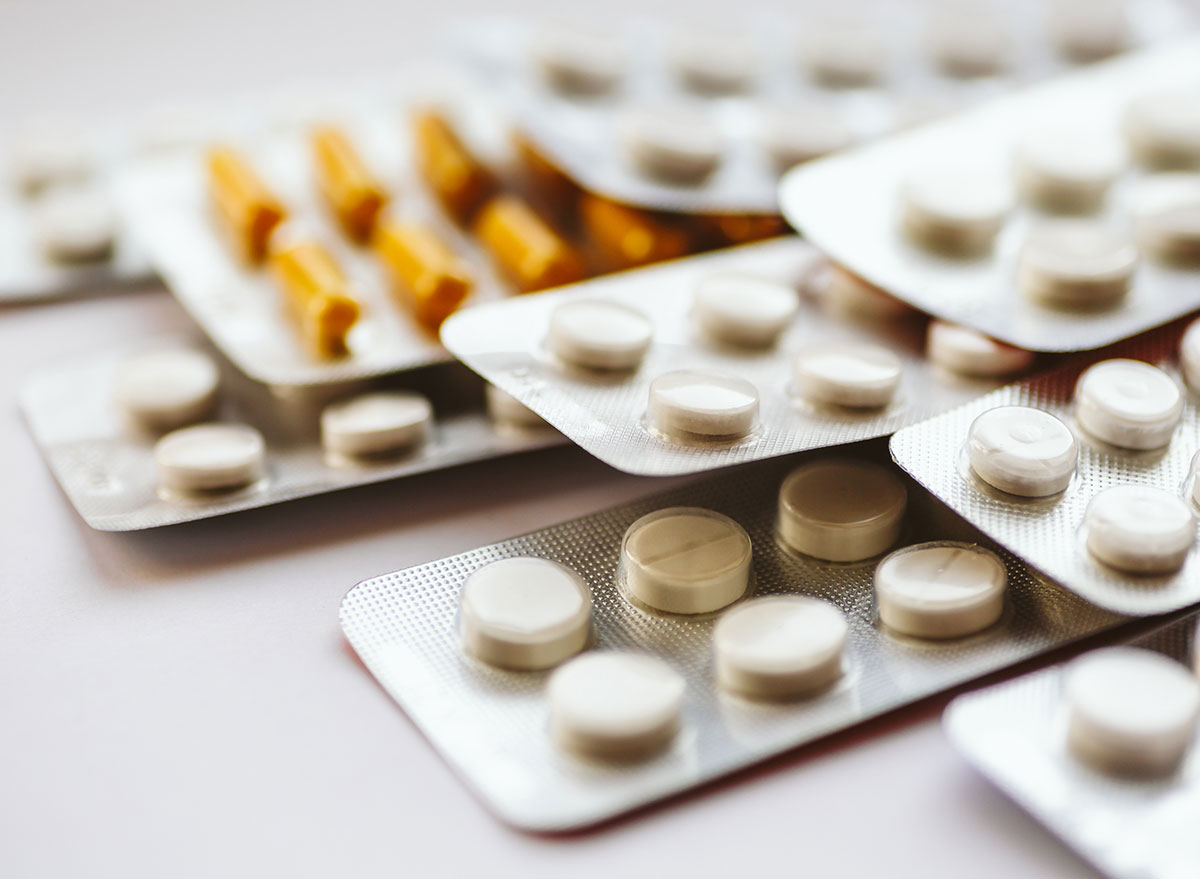
As people age, it’s often not just the number of years they’ve lived that goes up, but also the number of medications they take. High blood pressure, cholesterol—the list goes on, when it comes to ailments we develop later in life that can be treated with the help of medicine.
“But it’s important to remember, that many medications interact with alcohol and shouldn’t be taken at the same time—this includes medications as simple as acetaminophen (the active ingredient in Tylenol),” says Dr. Bohl. “If you’re on any medications, talk to your healthcare provider about whether it’s safe to combine your medications with drinking.”
Be mindful: why are you drinking?
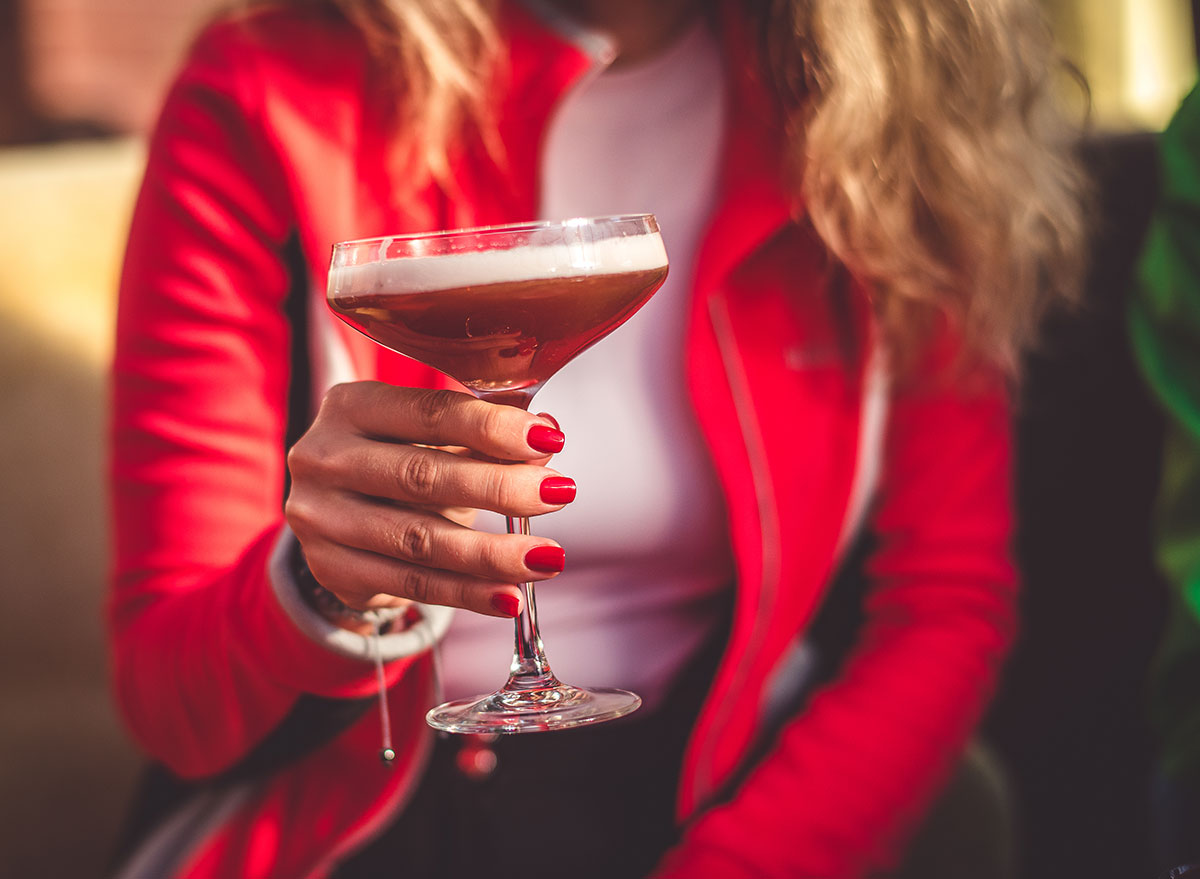
This unhealthy habit is something to look out for at every age: drinking to help deal with depression. Alcohol can provide an escape, but using it to numb any less-than-desirable feeling is ultimately harmful to mental and physical health. Dr. Bohl points to research that showed that some older people, especially, drink to help soften their depression. But this could be making it worse.
“Alcohol may actually increase depressive symptoms,” he says, “and can lead to social isolation. If you’re drinking as a way to cope with life’s stressors or in an attempt to improve your mood, consider seeking care from a mental health professional instead.”
For even more drinking tips, read these next:
- I’m an RD, and This Is The One Thing You Crave When You Give Up Alcohol
- Here’s What Happens to Your Liver When You Drink Alcohol
- Secret Side Effects of Giving Up Alcohol, Say Dietitians

